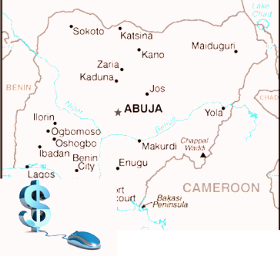- Bringing Broadband to all Nigerians: Private Partnership Funding
By Olanrewaju Lanre
The telecommunication industry in Nigeria plays a pivotal role in driving economic growth, social development, and technological advancement. Nigeria is known as Africa’s largest ICT market with about 82% of the continent’s telecoms subscribers and 29% of internet users subject to debate.
To ensure its sustained progress and competitiveness, the Nigerian government should consider providing a monetary intervention similar to Canada and United States to bolster the sector.
This grant proposal outlines a comprehensive strategy to allocate financial resources to the telecommunication industry, focusing on infrastructure development, digital inclusion, and innovation, ultimately benefiting the nation’s economy and citizens. Institutions such as hospitals, schools, and other notable facilities should be mapped out to benefit from the program.
The primary objective of this grant intervention is to support the growth and development of Nigeria’s telecommunication industry by providing targeted monetary allocation.
A significant portion of the grant will be allocated to enhancing telecommunication infrastructure across Nigeria. The funds will be used to expand the coverage of existing networks and construct new infrastructure in underserved and remote areas. The National Information Technology Development Agency (NITDA) is an evidence that the Nigerian government has started taking steps towards the development and support for the ICT, the agency is also responsible for digital policy implementation.
By improving connectivity and network capacity, the government should aim at bridging the digital divide, ensuring that citizens from all regions have access to reliable and affordable communication services. Creation of virtual library, information hubs, and application or software development centers is also an angle to improving and encouraging the ICT sector in the country.
Also, investments will be made in laying a robust fiber-optic backbone,VSAT for last miles and upgrading mobile networks to support the increasing data demands. The modernization of infrastructure and it’s declaration as Critical National Asset by the office of the National Security Adviser will enhance internet speeds, reduce latency, and foster the development of digital services and applications, propelling Nigeria towards becoming a full digital economy. Nigeria aspires to become a force in the economy of the world and the country recognizes ICT development and broadband accessibility as part of the critical requirements to attain this goal.
In order to promote digital inclusion, a portion of the grant should be dedicated to providing affordable internet access to vulnerable and marginalized populations. The government may collaborate with telecommunication operators to implement subsidies or discounted packages for low-income households and educational institutions. Initiatives like this will not only empower individuals with access to information and opportunities but also stimulate socio-economic development and reduce the digital divide.
Furthermore, the grant or intervention will fund the establishment of community-based digital centers and telecommunication training programs to empower citizens with digital skills. These centers will provide digital literacy training and equip individuals with the knowledge and tools to utilize technology for personal and economic growth.
The government may also resolve to incentivize industry players to invest in research and development activities, encouraging the adoption of advanced technologies such as 5G, Internet of Things (IoT), and also Artificial Intelligence (AI). By supporting research and innovation, Nigeria can become a hub for technological advancements, attracting foreign investment and creating job opportunities locally for its citizens.
Monitoring and Evaluation is important in ensuring the effectiveness of the utilization of the grant and measure the impact of the intervention, a robust monitoring and evaluation framework should be established. Key performance indicators (KPIs) will be defined in total compliance to assess the progress in infrastructure development, digital inclusion efforts, and innovation outcomes. Regular assessments will enable the government to make data-driven decisions, optimize resource allocation, and achieve the desired objectives. The data mining method with clustering, using Self Organizing Map (SOM) algorithm can be adopted for surveillance.
In conclusion, by providing a monetary grant or intervention for Nigeria’s telecommunication industry, the government can significantly boost infrastructure development, enhance digital inclusion, and promote innovation. Similar to the successful initiatives in Canada and United States, this grant will create an environment conducive enough for economic growth, local job creation, and improved quality of life for citizens.
Collaboration between the government, telecommunication operators, and other stakeholders will be essential to ensure the successful implementation of this intervention, ultimately propelling Nigeria towards a digitally inclusive and technologically advanced future.
Enough of scratching the surface, let the indigenous Digital Nomads take their rightful place. It’s a Practical approach methodology not theories.
© Olanrewaju Lanre (CDOA FIIM MNCS MCPN Dip Security Management,Dip Cyber-Security). Boardroom Member and Field Support Project Manager, Equinoxcore Technology Limited.





























